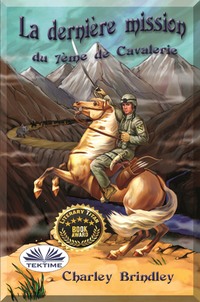
Полная версия
Dragonfly Vs Monarch

Charley Brindley
Dragonfly vs Monarch
byCharley Brindley
charleybrindley@yahoo.com
www.charleybrindley.com
Edited byKaren BostonWebsite https://bit.ly/2rJDq3f
Front cover art by
Niki Vukadinova
Back cover art by
Charley Brindley
© 2019 by Charley Brindley all rights reserved
Printed in the United States of America
First Edition May 24, 2019
This book is dedicated toVern Franklin Brindley
Other books by Charley Brindley
1. Oxana’s Pit
2. The Last Mission of the Seventh Cavalry
3. Raji Book One: Octavia Pompeii
4. Raji Book Two: The Academy
5. Raji Book Three: Dire Kawa
6. Raji Book Four: The House of the West Wind
7. Hannibal’s Elephant Girl, Book One
8. Hannibal’s Elephant Girl, Book Two
9. Cian
10. Ariion XXIII
11. The Last Seat on the Hindenburg
12. Dragonfly vs Monarch: Book One
13. The Sea of Tranquility 2.0 Book One: Exploration
14. The Sea of Tranquility 2.0 Book Two: Invasion
15. The Sea of Tranquility 2.0 Book Three
16. The Sea of Tranquility 2.0 Book Four
17. The Rod of God, Book One: Tthe Edge of Disaster
18. Sea of Sorrows, Book Two of The Rod of God
19. Do Not Resuscitate
20. Henry IX
21. Qubit’s Incubator
Coming Soon
22. Dragonfly vs Monarch: Book Three
23. The Journey to Valdacia
24. Still Waters Run Deep
25. Ms Machiavelli
26. Ariion XXIX
27. The Last Mission of the Seventh Cavalry Book 2
28. Hannibal’s Elephant Girl, Book Three
See the end of the book for details about the others
Chapter One
In the air over Rio
Current day
Autumn Willow watched the ground below as the old B-17 bomber banked smoothly into the Rio de Janeiro landing pattern. She sat in the right seat of the cockpit and scanned the horizon as they leveled out.
“There’s Pantanal 413.” She pointed half-left toward the Brazilian Boeing 737 airliner, eight miles to the northwest and five thousand feet above them.
Her grandfather nodded and turned his attention back to the Aerovias cargo jet ahead of them in the landing pattern. He reached to the trim control knob while keeping his eyes on the cargo jet, adjusting the trim by two notches.
“Rio tower,” Autumn said into the microphone of her headset. “B-17 388. We’ve turned downwind behind Aerovias 856.”
“B-17 388. Rio tower. We are having you in our sight. Pantanal 413 and American Airlines 221 will circulate once on ten thousand over our heads to serve you time.”
“Rio Tower. B-17 388. Relay our thanks to 413 and 221. Sorry we can’t match their speed.”
“Rio Tower. They think they do not mind idling for one time longer, more or less.”
Autumn pressed her radio button twice.
“Pantanal 413 to B-17 388. We just sit on here to enjoy the sight of you aeroplane.”
“American Airlines 221 to B-17. You’re the prettiest thing I’ve ever seen in the air.”
“Thanks, 221 and 413,” Autumn said, then glanced up toward American Airlines 221, ten thousand feet above. “Hope to meet up with you guys on the ground.”
“413. We be on there pretty quick afterward you do.”
“221. Bet on it. Are you the one flying that graceful old war bird?”
Autumn looked at her grandfather and saw him give her a wink. The old man then took his hands from the wheel and gave her a Your turn gesture.
She shoved the microphone up away from her lips. “You kiddin’ me?” She grabbed the wheel and lifted her feet to the pedals. “Are you kidding me?”
“I never kid anyone, Clicker. I’m just going to enjoy the ride on this landing.”
The twenty-two-year-old grad student swallowed and reached for the four throttles with her left hand. “You work the flaps and carburetor heat for me.”
“Tell me when, and how much.”
Autumn positioned the microphone back to her lips and pressed her microphone button on the wheel. “Roger that, 221.”
“B-17, looks like you got quite a crowd down on the tarmac. Show ‘em what real flying’s all about.”
Autumn pressed her microphone button twice, then called the controller at the airport. “Rio tower. B-17,” she said. “Wind check.”
She’d seen the airport’s tetrahedron pointing into the wind and knew she would have to touch down at a slight angle to the runway, but her grandfather’s words came back to her.
Never believe anything you hear, and only half of what you see. Flying is as much art and instinct as it is a science.
“B-17,” the tower answered. “Crosswind quartering, left by right. Fifteen knots, approx.”
“Roger, tower.”
Autumn scanned her instruments and added a little power. The deep throb of the four propellers increased as the engines revved up a tick. She then banked the B-17 into a sweeping right turn.
When you’re in the air, there is no wind, because your aircraft becomes part of it. Her grandfather’s words from her first flying lesson. But on landing, you have to deal with the wind aggressively. Otherwise, it’ll wreak havoc on the most powerful of aircraft.
Aerovias 856 cargo was well ahead of the B-17 and already turning cross wind.
Rio de Janeiro’s Galeao International Airport, on Governor’s Island, has one of the most difficult pilot approaches in the world. With notorious crosswinds and the waters of Guanabara Bay off each end of the runway, there’s no margin for error.
Autumn pressed her intercom button. “Buckle up, guys. Guess who’s taking the Shenandoah into Rio?”
“Oh, shiiiiiit,” someone’s voice came over the intercom from the back of the plane.
“You got your ‘chute on, Andy?” said another voice.
“I do now.”
“Matthew, whar y’all put my dang jug of Jim Beam?”
“Cute,” she said and clicked off the intercom as she scanned the horizon for other traffic and banked the old bomber into the downwind leg of the landing pattern.
Aerovias 856 was now on his final approach and would soon touch down on runway two-eight.
Autumn saw the cargo jet crabbing to his left. She felt a bead of sweat collect on her right temple and run down her cheek. She checked the airspeed indicator and altimeter, then pulled all four throttles back a fraction. She eased the wheel forward.
“Ten percent flaps.”
“Ten percent flaps.” Her grandfather adjusted the flaps.
“Carburetor heat half.”
He pushed the four carburetor heat knobs forward. “Carburetor heat half.”
She wanted desperately to see his expression but knew she’d read nothing there, even if he was terrified. Outside the cockpit, he always joked, treating her like one of the boys, and he never missed a chance to brag about his granddaughter being a graduate student, studying micromechanics at MIT. But inside the cockpit, he was a serious, no-nonsense pilot all the time.
Grandfather Baylor Willow, two years older than the Shenandoah, was born in 1941. By the end of World War II, the old aircraft had flown forty-six missions over Germany, while he still played with his alphabet blocks. He saved her from the scrap heap in 1964, and now she was one of only eleven left in the world. Of the twelve thousand built during the war, all the others had either been destroyed in battle or scrapped later.
The beautiful vintage plane drew a large crowd everywhere she went, and Autumn couldn’t be prouder than to be at the controls as they flew into the Rio airport.
“Landing gear down,” she said.
Her grandfather flipped the switches to lower the main gear.
She heard the hydraulics squeal to life and, ten seconds later, the solid thump of one of the wheels locking into place. She waited for the second one, but it didn’t happen. Another five seconds, and still no thump. She looked at her grandfather.
His only reaction was to lift a shoulder. You’re in command, Clicker.
She knew that was his silent response. He always called her by her nickname when they were alone. On her eleventh birthday, he’d given her an old telegraph hand key and wired it into her CD player’s speakers so she could learn Morse Code. Autumn thought it was the grandest present she’d ever received and was soon clicking out simple messages for him. She spent so much time on the key, he soon began calling her ‘Clicker.’ The nickname stuck, but it was their private nickname; everyone else called her ‘Autumn.’
Grandfather Baylor was the only father she’d ever known. Her first and second sets of parents were nothing more than blank spaces at the beginning of her life.
She received her first flying lesson from him when she was tall enough to reach the plane’s pedals. That was his present to her on her ninth birthday, just ten days after her grandparents had adopted her—her second adoption. Now she had almost three thousand hours in the air; twenty-four hundred in her grandfather’s Cessna 150, two hundred in a Link trainer, and the rest in multi-engine aircraft, including two hundred hours at the controls of the B-17. However, she’d never landed the four-engine antique aircraft at a busy major airport.
Autumn flipped her intercom button. “Anderson. Drop into the ball turret, and check the landing gear.”
“Roger, Captain.”
“Ready on the hand-crank, Williams,” she said.
“I’m on it.”
“Right gear down and locked,” Anderson reported from the ball turret. “Left gear froze halfway.”
“Crank it down, Williams.”
“Roger that.”
“Anderson?” she asked.
“Not moving yet.”
“Thirty percent flaps,” she said.
Her grandfather increased the flaps and looked out his left window to see that the flaps responded. “Thirty percent flaps.”
“The wheel moved down about three inches,” Anderson said over the intercom.
“Rio tower to B-17. We thinking you have only one wheel sticking out.”
“Roger, tower. We’re working on it.” She switched to the intercom. “Come on, Williams,” Autumn said. “We got two minutes to touchdown.”
“You might…” Williams paused to take a quick breath as he worked the manual crank, leaving on his microphone, “have to do a one…wheelie.”
“Yeah, right,” Autumn said. “If you make me go around for a second try, I’m gonna be really pissed. They’re already stacking airliners over our head.”
“I like it better…when Grandpa flies. He’s not so–”
“Crabby?” Anderson cut in.
“Mean?” someone else chimed in.
“Bitchy…is what I was…”
“Ten degrees to go,” Anderson said. “You can line up on final, Ms. Captain.”
“Yeah, when I hear a clunk, I’ll line up on final.”
“Clunk.”
“Shut up, Matthew,” she said.
“Five more degrees,” Anderson said.
Autumn turned into her final approach to the runway. “If I hit the throttles, give me full carb heat and no flaps.”
“Roger that,” her grandfather said, resting his fingertips on the flap control lever.
Autumn heard a satisfying thump from the left landing gear locking into place, and she began to breathe again. She then flexed her knees to get the circulation going in her lower legs.
“Thirty seconds to touchdown,” she said into the intercom and knew the guys would keep quiet now and get into their seats as she concentrated on the landing.
Suddenly, she heard a new sound; something above her head clinked three times and rattled, like a small metal shaft breaking apart. Then came the decreasing whine of a motor winding down. She looked out her right window at the two starboard engines; they looked fine. She leaned forward to see past her grandfather and checked the two port-side engines. He did the same thing. All four engines appeared to be in full operation. She scanned her instrument panel and glanced out over the nose at the runway that seemed to grow larger by the second.
I’m coming in too fast.
On her second scan of the instruments, she saw it: the number two fuel pressure gauge needle touched the zero, bounced a little, and fell to the peg. The other three gauges all hovered around eighty psi.
“Port engine, inboard,” she said. “Fuel pressure dropped to zero.”
Her grandfather jerked around his head to check the engine. “Still running, but not for long.”
“I’m feathering port inboard. Airspeed?”
She knew she could land on two engines if she had to, but she wanted three. From here on in, she’d concentrate only on the runway. Touchdown was less than fifteen seconds away.
“Airspeed one-eighty,” her grandfather said.
She eased back the throttles. “Eighty percent flaps.”
“Eighty percent flaps.”
Autumn felt the increased lift right away and wiggled the pedals to feel the rudder. She watched the nose move back and forth in reaction to the rudder, then eased down the left pedal while applying right pressure to the wheel.
Ten seconds to go.
She had the nose into the crosswind, about five degrees to the left of their forward motion. The instant the two main gears touched the concrete, she’d have to correct the attitude of the plane immediately and align the nose with the yellow center stripe of the runway; otherwise, she risked losing control and running off the runway–or worse, flipping the aircraft over.
Three seconds to go. Two seconds.
Autumn heard the screech of rubber against the rough cement as both main wheels touched down together. Using the pedals and wheel in coordination, she lined up the nose on the center stripe.
“Full flaps,” she said.
“Full flaps.”
She pulled the three throttles all the way back and eased the wheel toward her stomach to settle the tail wheel down to the runway.
“Speed?” she asked as she concentrated on controlling the roll out.
“One hundred and ten.”
She couldn’t apply the brakes until they slowed to seventy miles per hour. If she hit the brakes now, she risked burning out the brake linings and possibly starting a fire in the main landing gear. She had plenty of runway ahead of her, so she let the fifteen-ton aircraft slow itself.
“Rio tower to B-17. Please receive taxiway 14-R, at ahead on your right hand.”
“Roger, tower.”
The problem with a B-17 on the ground is, the pilot can’t see directly ahead because the tail is on the cement and nose is raised high in the air—a normal situation for any tail-dragger.
Autumn used the pedals to fishtail a little to see forward. “There’s 14-R, two hundred yards.”
“Speed ninety,” her grandfather said.
The plane slowed quickly now. When the speed fell below seventy, she tilted the pedals forward, applying the brakes, decreasing to fifty miles an hour. When she was within forty yards of 14-R, she braked more and took the turn to her right, revving the outboard port engine to help pull her around and off the runway.
Autumn turned to her right window to see the American Airlines Boeing 777 touch down on the far end of the runway.
“Wow,” she whispered, looking back at the taxiway. “He sure had confidence in me.”
Her grandfather slid open his window for some fresh air and reached to pat her shoulder. “So did I, Clicker. So did I.”
She glanced at him and saw the gray Oxford shirt she’d bought for him in Buenos Aires was soaked with sweat.
Chapter Two
On that same day, on 9th Avenue in New York City, Rigger Entime left an office building and tried to remember where he had parked his car.
He was ten paces beyond the little girl before the image of her eyes registered on his foggy perception of that cold December afternoon—the end of his longest day. His doctor had put him through the stress and strain of a raw recruit. He was exhausted, and he wanted it finished; all of it.
When he turned back toward the girl, an enormous baldheaded man with a cane in one hand and the Wall Street Journal tucked under his arm, bumped into him. Rigger stumbled but kept his grip on the gray slips of paper in his hand.
“Drunken fool,” mumbled the bald man as he straightened his overcoat and trudged on.
From a distance, the girl’s eyes looked both melancholy and almost gleeful. It seemed to Rigger her sadness was a tender veil, a valiant attempt to disguise her urge to play with the Barbie doll tucked in the crook of her arm.
Her fingers toyed with a bare plastic foot as she stared at Rigger. The doll’s other foot was stockinged in faded blue and covered by a tiny black slipper, with the strap swinging loose.
A cardboard sign hung around the little girl’s neck, lettered in childish crayon, “Wil work 4 food.” Some imprinted words were torn in half along the bottom edge of the cardboard, “It’s the real thing.”
Past, present, and future fused into a frozen tide of emotion. The Earth lumbered on toward the winter solstice, and compassion warmed his aching heart. Rigger stuffed the five slips of paper into his coat pocket and knelt before her on one knee, feeling the icy cement through his tweed.
“What kind of work do you do, sweetheart?” He guessed she was about four years old.
The woman standing next to the girl spoke a daggered, “God bless you” to the back of a departing pedestrian who’d dropped two coins into her outstretched hand. She shifted her weight from one foot to the other and slipped her hands into the pockets of a dark Navy pea-jacket, the type one might buy for two dollars at a military surplus store. The outline of a torn-off chevron marked the shoulder of the jacket’s right arm. Her legs were bare below a short skirt. Thin socks and castoff Nikes rounded out her collection of old clothes. She stared up the street, over Rigger’s head, where a lady dressed in sable left a jewelry shop and came their way. Slick crimson nails tucked a fur collar tight over a harness of jewels.
A hand slipped from the pea-jacket pocket.
Rigger carefully fastened the strap on Barbie’s shoe as he watched the child’s face. He knew it would take only a wisp of a breeze to topple her into his arms, where he could hold her close until she was warm and cozy.
“Can you drink hot chocolate with little marshmallows?” He smiled, trying to soften his expression.
He saw her face start to brighten, but then she caught herself and looked up at the woman. Rigger looked up, too. The woman ignored them as her eyes followed the sable. The eyes of the sable focused on some distant point where parallel lines came together. She elevated her nose and quickened her step.
An empty hand returned to the pea-jacket pocket.
The girl’s mother didn’t look down at the two people at her feet, but instead shifted her gaze to a young man getting out of a taxi and motioning the driver to keep the change.
“How about you, ma’am?” he said up to her. “Could you go for a cup of hot chocolate?”
She looked down at him, and he saw only bitterness. Not the slightest trace of happiness was in the woman’s face, hidden or imagined; perhaps there never had been. The shrug of her slim shoulders conveyed much more than ‘I don’t care.’ She said without a word that she hated him and every rich bastard who walked by and insulted her with a few tarnished coins. Yes, she would take his stingy offering of a hot drink, but only because she and the girl hadn’t eaten anything all day. That’s what he saw in her cold shrug.
* * * * *“I help Mommy clean ‘partments,” the little girl said after a sip of the hot chocolate. She gave her sweet brown mustache a lick.
The three of them sat in a window booth at Hannibal’s Cafe, three blocks from where he met them. They were on one side of the table while Rigger faced them on the other. He slipped off his coat and let it fall behind his back. The woman and girl kept their coats on and buttoned.
“Oh,” he said, warming his hands on the steaming mug. “I bet you’re a big help to Mommy.”
The girl nodded as she held a sticky marshmallow to Barbie’s lips for a second, then popped it into her own mouth. She picked up her cup and slurped another marshmallow. Her mother stared out the window, with her hands wrapped around an untasted mug of hot chocolate.
Rigger looked to see what held her attention and was startled to meet her eyes in the reflection of the glass. She watched him in the mirrored window, not shifting her gaze. He blinked and took up his cup.
“We gonna get a pet l’phant,” the little girl said to Rigger.
The woman looked at the girl, narrowing her eyes. The girl narrowed her eyes back at her.
Rigger tried to interpret this fragment of intercepted communications. Was it a secret that the girl wanted a pet and strangers shouldn’t be made aware of it? Was ‘pet elephant’ a code phrase for something forbidden, perhaps an exotic bird, or maybe a father? Whatever it was, Rigger envied their easy relationship.
“Hurry up with your chocolate, Mama,” her mother said. “We have to go.”
“So,” Rigger said, “you do cleaning work.”
“Wait, don’t tell me.” The caustic knife of her words formed with practiced precision and cut without qualm. “You just remembered your maid went on vacation.”
“No, I don’t have a maid.” He kept his voice soft in spite of her combative attitude.
Has life been so difficult for her that every man is a threat? Or perhaps a menace to something close to her? Why can’t she see she has nothing to fear from me?
“Then your apartment is suddenly very dirty.” It sounded like an accusation.
“As a matter of fact, I keep it fairly clean.” This exchange was wearing Rigger down and getting them nowhere.
“What, then?”
“I just wondered how much you charge?”
“All that the traffic will bear.” Her cold eye-lock never wavered, never weakened.
“Oh.”
“Isn’t that what you charge?”
“I don’t charge anything, since—”
“I guess you just live off the fat of the land.”
Rigger gave up. “I suppose so.”
He returned his gaze to the little face framed in yellow curls and smiled as the girl silently admonished Barbie about something she apparently said without asking the girl’s permission.
I wonder if her hair is naturally curly. If not, someone spent a lot of time on it. Unusual for street people.
The woman sipped her chocolate, licked her upper lip, then took a big drink. She followed Rigger’s gaze to her daughter, who tried to catch a marshmallow with her tongue.
Ten minutes later, outside Hannibal’s, Rigger watched the two of them walk away. The girl hung on to the bottom edge of the pea-jacket as the woman shoved her hands into the pockets. Only the Barbie doll, cradled against the girl’s shoulder, looked back at him. He waved goodbye to Barbie, sighed, and went the opposite way. As he walked toward the drug store, he took the doctor’s prescriptions from his coat pocket.
* * * * *On the following Tuesday, the day after Christmas, Rigger walked the streets. He really had no reason to return to Hannibal’s Café; he just wanted to taste the chocolate again.
He caught his breath when he saw the two of them across the street from Hannibal’s, working the busy lunchtime crowd. They wore the same clothes as last week. He hustled through the traffic while they watched a gaggle of stockbrokers in pinstripes waddle by, half of them with cellphones grafted to their ears, hands attached. The rest of them had Bluetooth earbuds. All of them chattered a bit too loudly and waved their hands in the air, very much full of themselves.
“Hi there,” he said, coming up on their blind side.
The woman jerked her head around toward him, almost smiled, but then took on an expression that could have said, I was actually expecting someone else.
The child had a new sign, “Please help. Mommy lost job.” The girl’s face was stony as before, but her eyes welcomed him, and she turned Barbie his way. The doll gave him a blue-crayoned smile that wasn’t there last week.
He returned Barbie’s smile, then spoke to the mother. “How’s business?”
An urge to grab her shoulders to keep them from shrugging rose from his pectorals and tingled down to his hands, creating an awkward gesture. But she surprised him, and for an instant he thought he saw an unguarded sign of relief in her eyes.
“Not bad.” No shrug.
“You two had lunch?”









